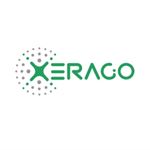What is a small business marketing agency? A small business marketing agency helps companies increase brand exposure and attract more customers through targeted strategies.
Small businesses often struggle with marketing due to limited resources and expertise. However, effective marketing is crucial for the growth and success of any business. This is where small business marketing agencies come in. This small business marketing agency specialize in providing marketing services to small businesses, helping them to reach and connect with their target audience.

A small business marketing agency can help a business develop a marketing strategy that is tailored to their unique needs and goals. This includes identifying the target audience, creating compelling messaging, and selecting the right channels to reach that audience. By working with a marketing agency, small businesses can save time and resources while still achieving their marketing objectives.
Key Takeaways
- A small business marketing agency provide specialized marketing services to help small businesses grow.
- A marketing strategy tailored to the business’s unique needs and goals is crucial for success.
- Working with a marketing agency can save small businesses time and resources while still achieving their marketing objectives.
Understanding Small Business Marketing

Small business marketing is the process of promoting a product or service to a specific target audience with the goal of generating sales and revenue. Effective marketing strategies can help small businesses increase their visibility, attract new customers, and build a strong brand identity.
Defining Your Target Audience
One of the most important aspects of small business marketing is identifying and defining your target audience. This involves understanding who your ideal customer is, what their needs and preferences are, and how your product or service can meet those needs.
By defining your target audience, you can create more targeted and effective marketing campaigns that resonate with your customers and drive sales. This can include using specific language and messaging, targeting specific demographics and geographic areas, and using the right channels to reach your audience.
Setting Marketing Goals and Objectives
Another key aspect of small business marketing is setting clear and measurable goals and objectives. This can include goals such as increasing website traffic, generating leads, or driving sales.
By setting specific goals and tracking your progress, you can measure the effectiveness of your marketing strategies and make adjustments as needed. This can help you optimize your campaigns and achieve better results over time.
The Importance of Branding for Small Businesses
Branding is also a crucial element of small business marketing. Your brand is the way that customers perceive your business, and it can have a significant impact on their purchasing decisions.
By developing a strong brand identity, you can differentiate your business from competitors, build trust and credibility with customers, and create a loyal customer base. This can involve creating a unique brand voice and visual identity, as well as consistently delivering high-quality products and services.
Overall, small business marketing requires a strategic and targeted approach that takes into account the unique needs and preferences of your target audience. By defining your target audience, setting clear goals and objectives, and building a strong brand identity, you can create effective marketing campaigns that drive sales and revenue for your business.
Here is a helpful resource for small business marketing strategies.
Developing a Marketing Strategy

Small businesses need to develop a marketing strategy to reach their target audience and increase sales. Developing a successful marketing strategy involves identifying the right marketing mix, budget allocation and cost management, and measuring and tracking ROI.
Identifying the Right Marketing Mix
The marketing mix is a combination of tactics that a business uses to promote its products or services. A small business should identify the right marketing mix that will help it achieve its marketing goals. The marketing mix includes product, price, promotion, and place.
A small business should consider the following questions when identifying the right marketing mix:
- What is the product or service that the business is offering?
- What is the target market for the product or service?
- What is the price of the product or service?
- What promotional tactics should the business use to reach its target audience?
- Where should the business sell its products or services?
By answering these questions, a small business can develop a marketing mix that is tailored to its target audience and marketing goals.
Budget Allocation and Cost Management
Developing a marketing strategy involves budget allocation and cost management. A small business should allocate its marketing budget wisely to maximize its return on investment (ROI). The marketing budget should be divided among various marketing tactics based on their effectiveness and potential ROI.
A small business should also manage its marketing costs carefully to avoid overspending. The business should track its marketing expenses and adjust its marketing budget as needed.
Measuring and Tracking ROI
Measuring and tracking ROI is crucial to determine the effectiveness of a small business’s marketing strategy. A small business should track its marketing campaigns and measure their impact on sales and revenue.
A small business can measure its ROI by using metrics such as customer acquisition cost, customer lifetime value, and conversion rates. By measuring and tracking ROI, a small business can identify which marketing tactics are effective and adjust its marketing strategy accordingly.
To learn more about developing a successful marketing strategy, check out this article by Entrepreneur.
Digital Marketing Essentials
Small business marketing agencies understand the importance of digital marketing in today’s world. It is crucial to have a strong online presence to reach potential customers and increase brand awareness. Digital marketing includes a variety of techniques, such as website development and design, search engine optimization (SEO), content marketing, and copywriting. Here are some essential digital marketing strategies that every small business should implement.
Website Development and Design
A well-designed website is the foundation of any successful digital marketing campaign. It serves as a platform to showcase products and services, provide information, and engage with customers. The website design should be user-friendly, visually appealing, and optimized for mobile devices. It should also have a clear call-to-action (CTA) to encourage visitors to take the desired action, such as making a purchase or filling out a contact form.
Search Engine Optimization (SEO)
SEO is the process of optimizing a website to rank higher in search engine results pages (SERPs). It involves various techniques, such as keyword research, on-page optimization, link building, and content creation. By improving the website’s visibility in search results, small businesses can attract more organic traffic and generate leads. It is essential to stay up-to-date with the latest SEO trends and best practices to ensure the website’s success.
Content Marketing and Copywriting
Content marketing and copywriting are essential components of any digital marketing strategy. They involve creating high-quality, engaging content that resonates with the target audience. Content can take many forms, such as blog posts, social media updates, videos, infographics, and more. The content should be optimized for search engines and promote the brand’s values and offerings. Copywriting involves crafting compelling headlines, taglines, and product descriptions that persuade visitors to take action.
To learn more about digital marketing essentials, check out this resource.
Leveraging Social Media

Small businesses can benefit greatly from having a strong social media presence. With the right strategies, social media can help increase brand awareness, engage with customers, and drive traffic to a business’s website. In this section, we will explore some effective ways for small businesses to leverage social media.
Building a Social Media Presence
The first step to leveraging social media is to establish a strong presence on various platforms. It is important to choose the platforms that align with the business’s goals and target audience. For example, Facebook is great for targeting a broad audience, while LinkedIn is better for targeting professionals.
Once the platforms have been chosen, businesses should create profiles that are consistent with their brand image. This includes using a profile picture and cover photo that are visually appealing and relevant to the business. It is also important to fill out the profile information completely, including contact information and a brief description of the business.
Engaging with Customers on Social Platforms
Engaging with customers on social media is a great way to build relationships and increase brand loyalty. This can be done by responding to comments and messages in a timely manner and by sharing user-generated content. It is also important to post content that is relevant and interesting to the target audience.
One way to increase engagement is to run social media contests or giveaways. This can help increase followers and encourage users to share the business’s content with their own followers. Businesses should be sure to follow the platform’s guidelines when running contests or giveaways.
Social Media Advertising Strategies
Social media advertising can be a cost-effective way for small businesses to reach their target audience. Facebook, Twitter, Instagram, LinkedIn, and Pinterest all offer advertising options that allow businesses to target specific demographics and interests.
When creating social media ads, businesses should use eye-catching visuals and clear calls-to-action. It is also important to track the performance of ads and make adjustments as needed.
Overall, leveraging social media can be a powerful tool for small businesses. By building a strong social media presence, engaging with customers, and using social media advertising, small businesses can increase brand awareness and drive traffic to their website.
Here is a link to Social Media Examiner, a website with high authority on social media marketing. They offer a wealth of information and resources for businesses looking to improve their social media presence.
Email Marketing and Lead Generation
Small businesses today require a robust marketing strategy that can generate leads and convert them into customers. Email marketing is a vital component of any marketing plan, enabling businesses to reach out to potential clients and keep existing ones engaged. With the right strategy, email marketing can drive traffic, increase customer engagement, and boost sales.
Creating Effective Email Campaigns
Creating an effective email campaign requires a well-planned strategy that targets the right audience with the right message. The first step is to build a quality email list that includes leads who are genuinely interested in your product or service. This can be achieved by offering valuable content or incentives in exchange for email addresses.
Once you have a quality email list, it’s time to create compelling email content that resonates with your audience. The content should be personalized, relevant, and engaging. It’s also essential to optimize your email design for mobile devices, as more than half of all emails are opened on mobile devices.
Conversion Rate Optimization (CRO)
Conversion Rate Optimization (CRO) is the process of improving the percentage of visitors who take a desired action on your website. In the context of email marketing, CRO involves optimizing your email campaigns to increase the number of subscribers who take the desired action, such as making a purchase or filling out a form.
To improve your email campaign’s conversion rate, you can use A/B testing to experiment with different subject lines, email content, and calls-to-action. You can also optimize your landing pages to align with your email content and make it easy for subscribers to take the desired action.
Nurturing Leads into Customers
Nurturing leads into customers is a critical aspect of email marketing. By sending targeted and personalized emails, you can build trust with your subscribers and guide them through the sales funnel. This can be achieved by segmenting your email list based on subscriber behavior and interests, and sending targeted emails that address their specific needs.
To nurture leads effectively, you can use email automation tools to send a series of emails that gradually introduce your product or service and build trust with your subscribers. You can also use email marketing services that offer lead scoring and tracking, allowing you to identify the most engaged and interested subscribers.
In conclusion, email marketing is a powerful tool for small businesses looking to generate leads and convert them into customers. By creating effective email campaigns, optimizing conversion rates, and nurturing leads, businesses can build strong relationships with their subscribers and drive sales. For more information on email marketing best practices, check out this resource.
Paid Advertising and PPC
Small business marketing agencies can help businesses increase their online visibility and attract more customers through paid advertising and pay-per-click (PPC) campaigns. Paid advertising and PPC are powerful tools that can help businesses reach their target audience quickly and effectively.
Google Ads and Search Advertising
Google Ads is one of the most popular platforms for PPC advertising. With Google Ads, businesses can create ads that appear at the top of search engine results pages (SERPs) when users search for specific keywords. This can help businesses reach their target audience at the exact moment they are searching for a product or service.
To maximize the impact of Google Ads campaigns, small business marketing agencies can help businesses identify the right keywords to target and create compelling ad copy that drives clicks and conversions. Additionally, agencies can help businesses optimize their landing pages to ensure that visitors are more likely to take action after clicking on an ad.
Paid Social and Display Campaigns
Paid social and display campaigns can help businesses reach their target audience on social media platforms and other websites. Facebook Ads is one of the most popular platforms for paid social campaigns, allowing businesses to create ads that appear in users’ newsfeeds or on the right-hand side of the screen.
Small business marketing agencies can help businesses create engaging ad copy and visuals that resonate with their target audience. Additionally, agencies can help businesses target their ads to specific demographics, interests, and behaviors to ensure that they are reaching the right people.
Managing PPC for Maximum Impact
Managing PPC campaigns can be complex and time-consuming, especially for small businesses with limited resources. Small business marketing agencies can help businesses manage their PPC campaigns for maximum impact, ensuring that they are getting the best possible return on investment (ROI).
Agencies can help businesses monitor their campaigns and adjust their targeting, ad copy, and bids as needed to optimize performance. Additionally, agencies can provide regular reports and insights to help businesses understand how their campaigns are performing and make data-driven decisions about future marketing efforts.
To learn more about PPC advertising and how it can help your business grow, check out this resource.
Analyzing and Reporting

Understanding Key Metrics and Analytics
To effectively measure the success of a small business marketing campaign, it is essential to understand key metrics and analytics. This involves tracking and analyzing data such as website traffic, social media engagement, email open rates, and conversion rates. By analyzing these metrics, a small business marketing agency can gain valuable insights into what is working and what needs improvement. This information can then be used to make data-driven decisions and adjust marketing strategies accordingly.
One important metric to track is the customer acquisition cost (CAC). This metric measures how much it costs to acquire a new customer and can help a small business marketing agency determine the effectiveness of their marketing campaigns. Other important metrics to track include the lifetime value of a customer (LTV) and the return on investment (ROI) of marketing campaigns.
Reporting to Stakeholders
Once key metrics and analytics have been analyzed, it is important to report the findings to stakeholders. This includes providing regular reports that highlight the performance of marketing campaigns and how they are impacting the business. These reports should be easy to understand and provide actionable insights that can be used to improve marketing strategies.
In addition to regular reports, a small business marketing agency should also hold regular meetings with stakeholders to discuss the performance of marketing campaigns and any adjustments that need to be made. These meetings should be used to review data and make data-driven decisions.
Continuous Improvement through Data
Finally, a small business marketing agency should use data to continuously improve their marketing strategies. This involves analyzing data on an ongoing basis and making adjustments to campaigns based on the insights gained. By doing so, a small business marketing agency can ensure that their marketing campaigns are always optimized for maximum performance.
To learn more about key metrics and analytics, check out this article from Entrepreneur.
Choosing the Right Marketing Agency

Small businesses often turn to marketing agencies to help them promote their products or services. However, with so many agencies to choose from, it can be challenging to select the right one. Here are some key factors to consider when choosing a marketing agency.
Evaluating Agency Expertise and Experience
When selecting a marketing agency, it is essential to evaluate their expertise and experience. Look for an agency that has experience working with small businesses in your industry. Check their portfolio to see what types of projects they have worked on in the past and what results they have achieved. It is also important to ensure that the agency has a team with the necessary skills and qualifications to deliver the services you require.
Assessing Agency-Client Fit
Another critical factor to consider when choosing a marketing agency is the fit between the agency and the client. A good agency-client fit means that the agency understands the client’s business goals, values, and culture. Look for an agency that takes the time to understand your business and is willing to work with you to achieve your goals. It is also essential to ensure that the agency’s communication style and work ethic align with your expectations.
Transparency and Communication
Transparency and communication are crucial when working with a marketing agency. Look for an agency that is transparent about their processes, fees, and timelines. A good agency should be willing to provide regular updates on the progress of your project and be responsive to your questions and concerns. It is also important to ensure that the agency is easy to communicate with and has a clear and concise communication style.
Overall, choosing the right marketing agency requires careful consideration of several factors. By evaluating the agency’s expertise and experience, assessing agency-client fit, and ensuring transparency and communication, small businesses can select an agency that will help them achieve their marketing goals.
For more information on choosing the right marketing agency, check out this article by Forbes.
Success Stories and Case Studies

A small business marketing agency are known for their ability to help businesses grow and succeed. One way they do this is by showcasing client growth through success stories and case studies. In this section, we will explore some of the ways for a small business marketing agency have helped their clients achieve success.
Showcasing Client Growth
A small business marketing agency often showcase their clients’ growth by highlighting key metrics such as increased website traffic, higher conversion rates, and improved search engine rankings. These success stories demonstrate the effectiveness of the agency’s marketing strategies and the impact they can have on a business’s bottom line.
One example of a small business marketing agency that has successfully showcased client growth is Digital Shift. The agency’s website features a case study of a local restaurant that was struggling to attract new customers. Digital Shift implemented a targeted social media campaign that resulted in a 25% increase in website traffic and a 15% increase in in-store sales.
Testimonials and Reviews
Testimonials and reviews from satisfied clients are another way for a small business marketing agency to demonstrate their effectiveness. These testimonials provide social proof and can help potential clients feel more confident in their decision to work with the agency.
For example, Ignite Digital features a page on their website dedicated to client reviews. The page includes testimonials from a variety of industries, including healthcare, finance, and e-commerce. These reviews highlight the agency’s ability to deliver results and provide excellent customer service.
Learning from Successful Campaigns
A small business marketing agency can also learn from successful campaigns and use those insights to improve future marketing strategies. By analyzing what worked and what didn’t, agencies can continually refine their approach and deliver better results for their clients.
One example of a small business marketing agency that has used this approach is WebFX. The agency’s website features a portfolio of successful campaigns, including a social media advertising campaign that generated over 100,000 leads for a client in the education industry. By analyzing the data from this campaign, WebFX was able to identify key factors that contributed to its success and use those insights to improve future campaigns.
In conclusion, a small business marketing agency can help businesses achieve success by showcasing client growth, providing testimonials and reviews, and learning from successful campaigns. By working with a reputable agency, businesses can benefit from the expertise and experience of marketing professionals and achieve their growth goals.
Frequently Asked Questions

What are the key services provided by a small business marketing agency?
A small business marketing agency offer a range of services to help businesses improve their marketing efforts. These services may include market research, branding, social media management, email marketing, search engine optimization (SEO), pay-per-click (PPC) advertising, content creation, and more.
How can a small business marketing agency improve my company’s online presence?
A small business marketing agency can help improve your online presence by developing a comprehensive digital marketing strategy that includes tactics such as SEO, PPC advertising, social media management, and content creation. By implementing these strategies, a marketing agency can help increase your website traffic, improve your search engine rankings, and generate leads for your business.
What should I look for when choosing a small business marketing agency ?
When choosing a small business marketing agency, it’s important to look for a company that has experience working with businesses similar to yours. You should also consider the agency’s track record of success, their pricing structure, and their communication style. Additionally, it’s important to choose an agency that is transparent about their strategies and provides regular progress reports.
What is the typical cost range for services offered by a small business marketing agency?
The cost of services offered by a small business marketing agency can vary widely depending on the scope of work and the agency’s pricing structure. According to Forbes, small businesses should expect to spend between 7-8% of their total revenue on marketing. However, it’s important to note that some agencies may charge a flat fee for their services, while others may charge on a project-by-project basis.
How do small business marketing agencies measure and report success?
A small business marketing agency typically measure success by analyzing key performance indicators (KPIs) such as website traffic, search engine rankings, lead generation, and social media engagement. They may also use tools such as Google Analytics to track user behavior and measure the effectiveness of their strategies. A good agency will provide regular progress reports to their clients, outlining the results of their efforts and any areas for improvement.
Can a small business marketing agency tailor strategies for niche markets?
Yes, a small business marketing agency can tailor their strategies to meet the specific needs of niche markets. By conducting market research and analyzing consumer behavior, a marketing agency can develop targeted campaigns that speak directly to your target audience. This can help improve the effectiveness of your marketing efforts and generate more leads for your business.













